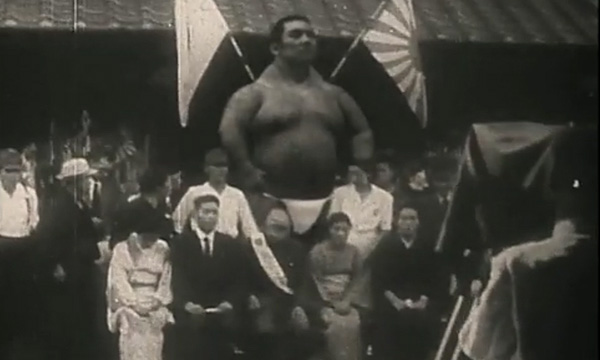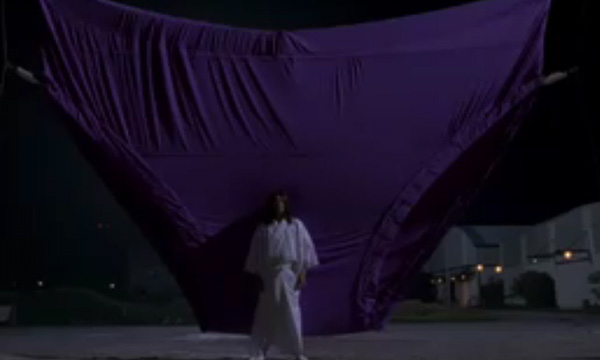Do you think life is easy for superheroes? If you do, then you should watch Dai-Nipponjin (approximately translated in English as Big Man Japan). In the mockumentary style, the film by Hitoshi Matsumoto sheds light on the private life of Masaru Daisato, aka Dai-Nipponjin, the last defender of Japan and also the last in his family to keep the legacy alive.



Daisato is far from being the average successful hero: he’s a crestfallen middle aged man, living in humble conditions together with a cat not even his own in a small house in the outskirts of Tokyo. His wife deserted him; his young daughter barely knows him or cares about him; his grandfather is a senile man with a tendency to act of his own crazy accord, frequently disgracing him; his father was a madman who nearly electrocuted him while he was still a boy. His sense of fashion is terrible. And all these misfortunes are not even offering the complete picture about Daisato’s life. His agent is a greedy young woman that, in order to support her costly lifestyle – not to mention her two Afghan hounds, Sympathy and Delicacy – forces him to accept the most mortifying compromises, like selling parts of his body to local sponsors; his collaborators are mocking him behind his back. Despite his patience and modesty, his TV ratings are getting lower and lower and people see him not as a savior but as an outcast of society, a total failure and a disgrace. The crew filming the feature on his life ends exposing his weakness and clumsiness, making him question his own faithfulness to his noble cause, which is at this point to him only source of discomfort – he cannot travel around, he cannot even take a day off – and dissatisfaction. Daisato is a man in a deep midlife crisis, not an exemplary individual with exceptional powers.
The plot, as I am writing it, may seem more coherent than it actually is. It frankly sounds too “normal” compared to the film. If you are not used to Japanese movies, you might be shocked by Dai-Nipponjin. If you are used to them, then you know you have to expect the unexpected. Dai-Nipponjin is a pastiche of cliches taken on loan from traditional Japanese monster and catastrophe films, from Godzilla to Ultraman. These cliches though are being re-read in a totally unconventional way: veiled criticism against Japanese pop culture and materialism is present in many scenes and in the unassuming lines of dialogue pronounced by the characters interviewed by the mockumentary crew. Monsters are not exactly the most usual Japanese fiends you can find around either: some feature characteristics shamelessly taken from Western conventional icons, some sarcastically joke about Japanese traditions. The Stink Monster prefers to start a petty argument with Dai-Nipponjin instead of confronting him; the Child Monster inspires pity in the public he was supposed to scare.
Computer graphics and techniques reproducing old style TV shows’ cheap effects, especially from the 70’s and the 80’s, are used in abundance. Some will be enraged by Matsumoto’s film, others will be delighted. Nobody will be left indifferently yawning in his seat, at any rate. If you enjoy films in the style of the Takashi Miike of Zebraman or the Kitano of Getting Any? this movie will definitely make you happy.
Hitoshi Matsumoto – actor, director and writer – is a well-known character in Japan. Once a famous comedian, he has worked over the years on several projects, from TV to radio to books, a little like other figures in the Japanese panorama that are quite hard to understand for the Western audience. In Western culture, it’s harder to find people that are at the same time good technicians and skilled actors and capable producers. Matsumoto proves to have chances to become one of the biggest names known also outside of his country. His appeal will definitely reach more than a few Westerners. His unpretentious performance as Daisato Masaru is quite unforgettable, in a way; his filmmaking skills, despite the apparent cheapness and the heavy use of second-rate tricks, are quite refined and complex; his script works well for the achievements it was intended to fulfill, uniquely mixing fake documentary with lousy commercial forms of entertainment and more subtle typologies of stylization.
Matsumoto’s name is to keep in mind for the next future, for he could himself become a Big Man, inside and outside Japan.
Title: Littlerock
Year: 2010
Director: Hitoshi Matsumoto
Genre: Comedy, Sci-fi, Fantasy
Country: Japan
Runtime: 113 minutes
Language: Japanese